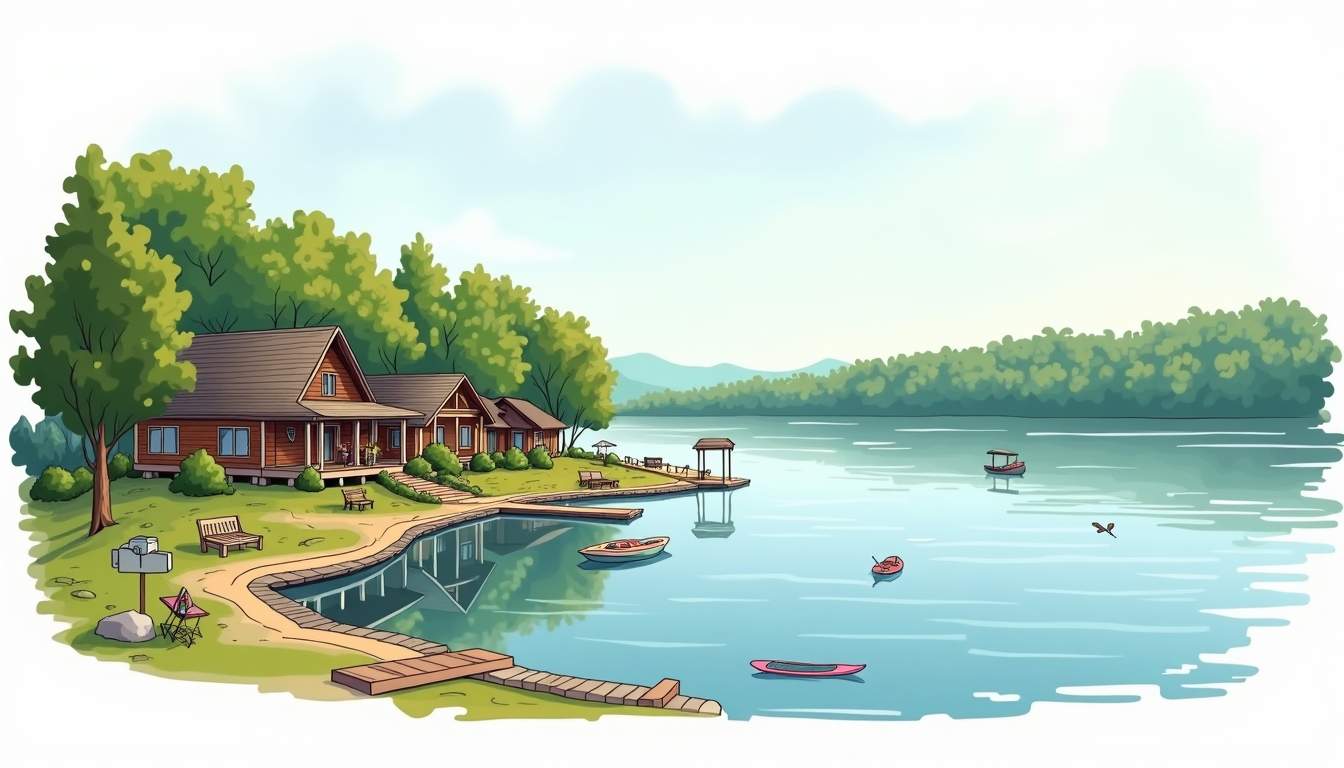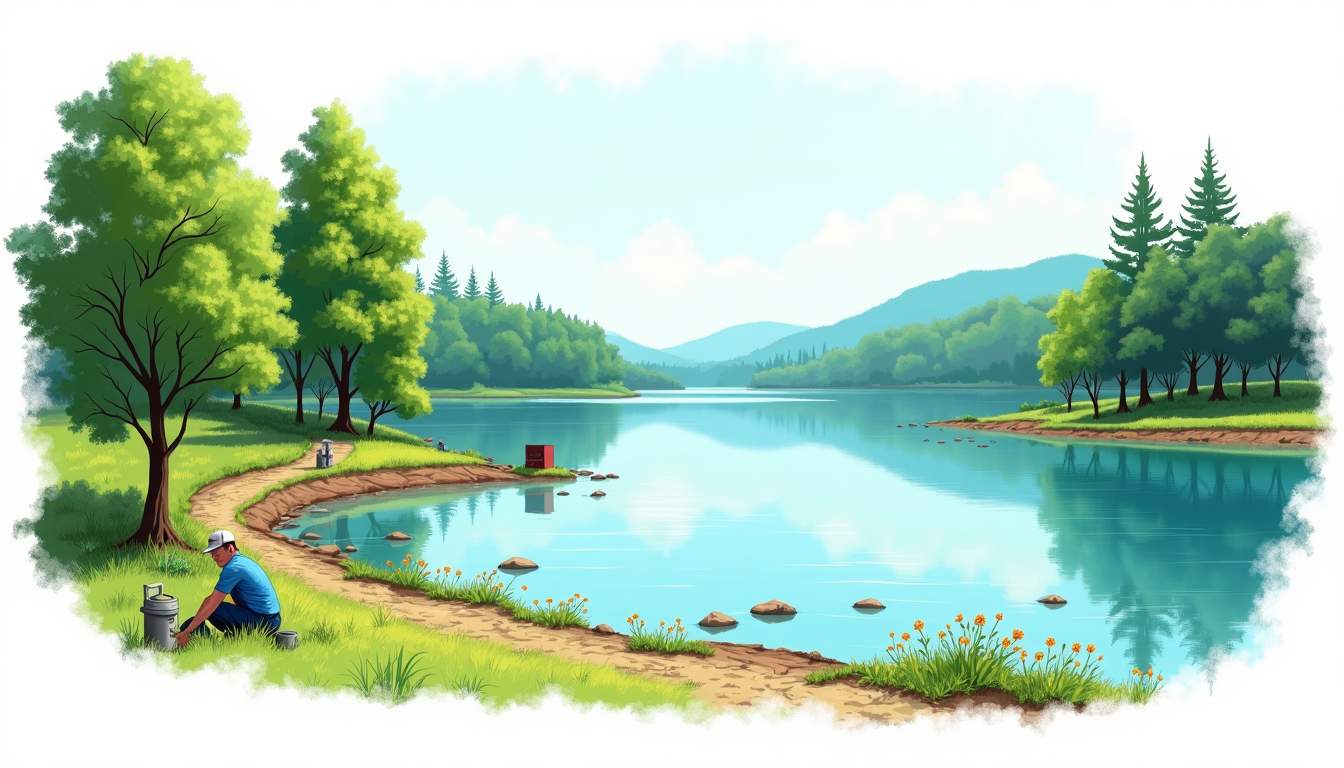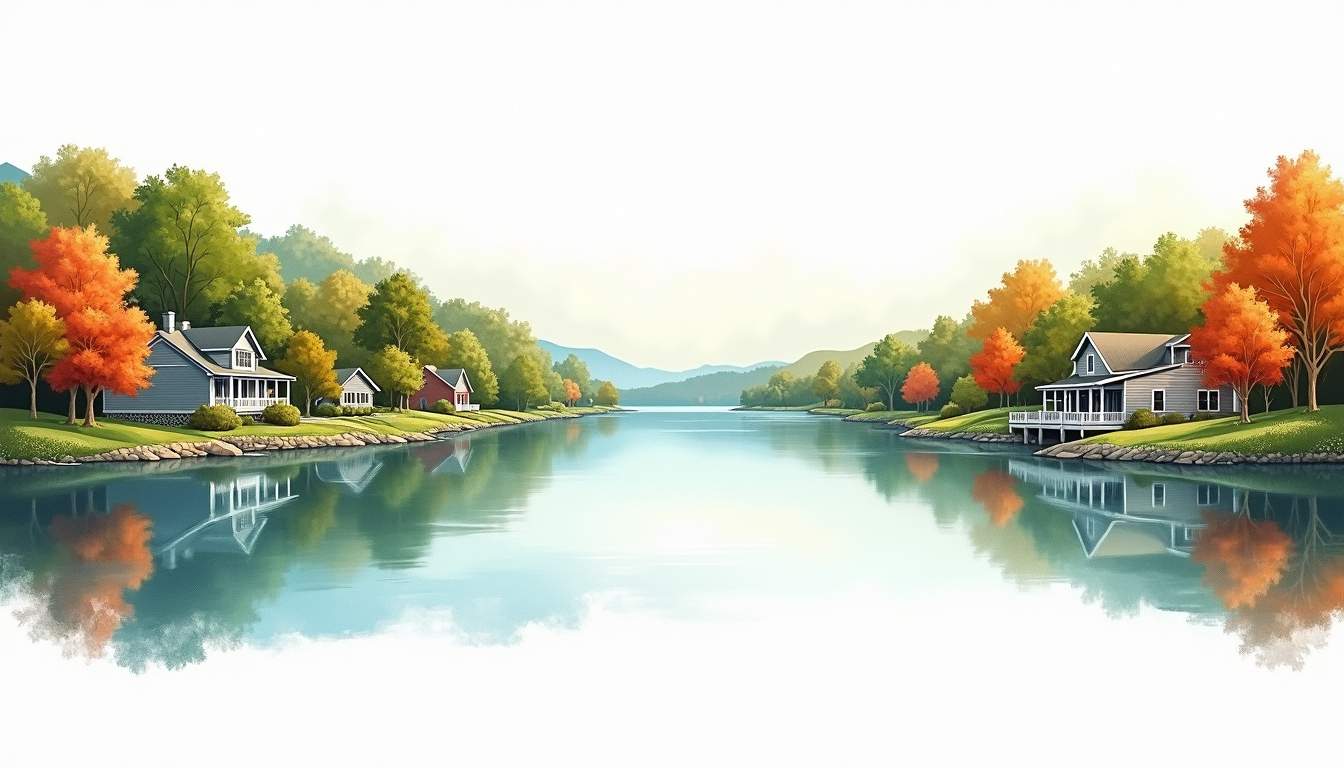
Watts Bar Lake stretches across Tennessee with a mixture of calm coves, open water, and shoreline communities that combine small-town charm with outdoor recreation. The communities around the lake are woven together by a lifestyle centered on the water: boating, fishing, lakeside gatherings, and a steady stream of local events that keep neighbors connected. This article explores what life is like for residents and seasonal visitors, highlighting housing, recreation, local culture, services, and the rhythms of life on and around the lake.
Residences around Watts Bar Lake range from modest cabins tucked into wooded lots to sprawling waterfront homes with private docks. Many neighborhoods retain a rustic character: winding roads that follow the shoreline, large lots with mature trees, and a mix of older homes and newer construction that takes advantage of scenic views.
Small towns and unincorporated communities near the lake offer services and conveniences without the bustle of a city. Utilities, schools, and medical services are accessible within a reasonable drive, and real estate prices vary widely depending on water access, lot size, and proximity to marinas and town centers.
Community life here often revolves around the lake, with neighborhood events such as fishing tournaments, boat parades, and seasonal festivals drawing residents together. Many neighborhoods have established homeowner associations that help maintain shared amenities like private boat ramps, picnic areas, and walking trails, fostering a close-knit and welcoming atmosphere.
Additionally, the local architecture reflects the area's heritage, blending traditional Southern styles with modern influences. Many homes feature wide porches and large windows designed to capture breezes and views, promoting a relaxed, indoor-outdoor lifestyle that resonates with the lake area's tranquil setting.
Waterfront properties are prized for direct access to the lake and unobstructed views, but they come with specific considerations: shoreline management, dock permits, and sometimes higher insurance costs. Off-water properties often provide more land and privacy for the price, with many owners enjoying easy boat access via community launches or nearby marinas.
Furthermore, waterfront homes often require ongoing maintenance to protect against erosion and water-related wear, which buyers factor into their long-term planning. Off-water properties, by contrast, can offer greater flexibility in building styles and landscaping without the constraints imposed by lakeside regulations.
Seasonal homes and vacation rentals are common, especially during summer months when boating and fishing peak. Short-term rental availability supports a modest tourism economy and offers homeowners supplemental income; however, it can also bring more transient traffic during holiday weekends.
The influx of visitors during peak seasons enriches the local culture, introducing a variety of recreational activities and boosting demand for dining and entertainment options. Many vacation properties are tailored to provide comfortable, family-friendly retreats with amenities such as screened porches, fire pits, and boat slips, catering to guests seeking an immersive lakeside experience.
Daily life around the lake balances outdoor recreation with practical needs. Grocery stores, hardware shops, auto services, and pharmacies are found in nearby towns, while larger shopping centers and hospitals are a short drive away. Schools serve local children with strong community involvement in extracurricular activities and sports.

Community centers, churches, and civic groups play an important role in social life. Volunteer fire departments and rescue squads are often staffed by locals, reflecting a culture of neighbor-helping-neighbor that’s typical in rural and semi-rural Tennessee communities.
Personal vehicles remain the primary mode of transportation. Roads can be narrow and winding along the lake, so travel times should be factored into daily planning. For those commuting to nearby employment centers, traffic is usually light outside of holiday weekends.
Medical clinics and urgent care facilities are available in nearby towns; hospitals are located within reasonable driving distance. Emergency response for lakeside incidents may involve coordinated efforts between land-based first responders and marine rescue teams, underscoring the importance of safe boating practices.
Recreation defines much of the culture around Watts Bar Lake. Boating is a daily pastime for many residents, from pontoons for family outings to bass boats for competitive anglers. Marinas and boat launches are strategically placed to serve communities along the shoreline.
Beyond boating, the lake supports water sports such as wakeboarding, tubing, kayaking, and paddleboarding. Quiet coves invite kayakers and canoeists to explore shaded shorelines and small inlets where wildlife congregates.
Watts Bar is renowned for its fishing, particularly largemouth and smallmouth bass, crappie, and catfish. Anglers come from across the region for both casual weekend trips and tournament competition. The lake’s structure—cover, channels, and deep holes—creates desirable habitat for sport fish.
Shoreline parks and trails provide options for hiking, picnicking, and birdwatching. Playgrounds and picnic shelters near boat ramps make for family-friendly days by the water. Camping, both in designated campgrounds and on private parcels, is another popular way to connect with the natural setting.
Marinas are hubs for boating life, offering fuel, dockage, repairs, and supplies. Many marinas host social events, fishing tournaments, and maintenance services that help keep the boating community connected and vessels seaworthy.
Safety is emphasized through local regulations, courtesy on the water, and community-led education. Boating safety courses, visible signage, and seasonal patrols help reduce accidents and ensure that recreational use remains sustainable and enjoyable for everyone.
Shared dock spaces and transient slips require etiquette: keeping noise to a reasonable level, following fueling rules, and treating nearby boats and docks with respect. Marinas often publish specific rules to maintain an orderly environment during busy weekends and holiday periods.
Boat owners typically winterize engines and electronics, haul boats when necessary, and perform hull maintenance to protect investments during colder months. Marinas offer winter storage and shrink-wrap services to extend the life of equipment and prevent freeze damage.
Cultural life near Watts Bar Lake blends Southern tradition with lake-centric celebrations. Annual events—like fishing tournaments, fireworks over the water, and local festivals—bring residents together and attract visitors from surrounding areas.
Food plays a central role in social gatherings: backyard barbecues, fish fries, and potlucks are common. Local diners, barbecue joints, and family-run restaurants serve comforting regional dishes, often featuring locally caught fish or farm-fresh produce.
Live music, church choirs, and small theater productions are woven into the social calendar. Local parks and community centers host concerts and craft fairs that showcase regional artists and artisans. These events encourage a vibrant, participatory culture rather than a consumer-only scene.
Volunteer fire departments, civic clubs, and service organizations play a large part in community life. Fundraisers, fund drives, and volunteer-run events are regular opportunities to support local infrastructure and create social bonds that persist through generations.
Families find a variety of educational choices, including public schools, private institutions, and extracurricular programs. Youth sports are well-supported, and lake-based activities—junior fishing leagues, sailing lessons, and summer camps—provide experiential learning outside the classroom.
Community mentorship and intergenerational involvement are notable features. Older residents often share knowledge about fishing spots, boat maintenance, and local history, while younger generations inject new energy into festivals and recreational trends.
Childcare centers and after-school programs are available in nearby towns, often coordinated with school schedules. Summer camps and swim lessons at community pools or marinas give kids productive ways to spend warm months while learning water safety.
Long-term enjoyment of the lake depends on stewardship. Local groups, government agencies, and concerned citizens collaborate on water quality monitoring, shoreline management, and invasive species prevention. Education on best practices—like minimizing shoreline alteration and preventing fuel or oil spills—is part of community outreach.

Efforts to balance development with conservation include erosion control, native plant landscaping, and responsible septic system management. These practices help preserve fish habitat, reduce sedimentation, and protect drinking water sources downstream.
Boat inspections and cleaning stations are common strategies to prevent the spread of invasive aquatic plants and animals between water bodies. Habitat protection efforts—such as creating buffer zones and promoting native vegetation—support wildlife and maintain the lake’s ecological health.
Seasonal shifts shape both recreational patterns and community activities. Summer brings the highest concentration of boating, swimming, and festivals, while spring and fall are prime for fishing and milder recreation. Winter quiets the lake; some businesses scale back hours, and many residents focus on maintenance and preparing for the next busy season.

Holidays often draw big weekends with increased boat traffic and family reunions. Those living year-round adapt to these cycles, planning travel and social activities around peak times to avoid congestion and make the most of quieter months.
Fireworks over the water, holiday light displays, and community parades are highlights that reflect local pride. Many neighborhoods organize boat parades or decorated docks during festive periods, creating memorable gatherings that attract families and visitors alike.
Prospective residents should spend time in different seasons to understand traffic, noise, and community rhythms. Talking with neighbors, attending a few local events, and exploring nearby towns helps gauge whether the lifestyle aligns with expectations.
Practical steps include checking dock permits and setback regulations, understanding shoreline management requirements, and researching local utilities and cell service availability. For those commuting, factoring in drive times to workplaces and schools will prevent surprises.
Joining a civic group, volunteering for a local festival, or participating in marina events accelerates integration into the community. Neighbors typically welcome newcomers who show interest in local traditions and contribute to shared projects.
Life around Watts Bar Lake centers on a balance between enjoying natural beauty and participating in a close-knit community. The lake provides ample opportunities for outdoor recreation, social connection, and cultural expression, while residents and stakeholders work to preserve the environment and the lifestyle it supports.
Whether seeking a full-time residence, a weekend retreat, or a seasonal escape, the communities on Watts Bar Lake offer a pace of life that prioritizes the outdoors, community engagement, and tradition—anchored to the rhythm of the water and the people who call its shores home.
Embrace the waterside lifestyle described here at Tennessee National, where luxury living meets the beauty and community spirit of Tennessee’s finest natural surroundings. With a Greg Norman Signature Golf Course, private marina, waterfront dining, and over 20 member amenities, Tennessee National offers the perfect blend of recreation, comfort, and social connection. Whether you’re interested in a move-in ready home or a custom build, experience resort-style living alongside scenic trails and vibrant social clubs. Schedule a Private Tour today and begin your journey to lakeside luxury and lasting memories.